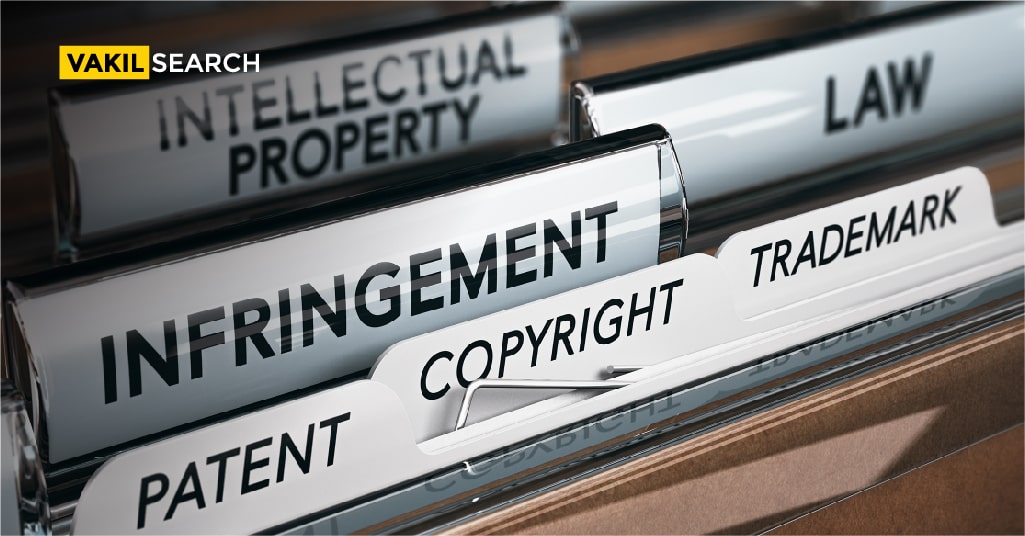Intellectual Property often goes undiscussed by founders early on, because their value is not immediately noticeable
Slowly but steadily, Indian entrepreneurs are understanding the massive value of Intellectual Property. Unlike before, where businesses rarely filed a patent or registered a trademark, more and more companies are doing so now. This write-up helps you understand what patent, copyright, and trademark mean – the 3 most common intellectual properties. Discover the differences: Trademark vs copyright vs patent.
Intellectual Property often goes undiscussed by founders early on, because their value is not immediately noticeable. Entrepreneurs, in fact, often question why they need to register for a trademark at all.
Intellectual property, or IP, is, however, hugely valuable in the long run and knowing its worth will aid in deciding when you need a trademark or copyright registration. Having a registered trademark, patent or copyright can ensure that you have all the legal rights to fight off another entity for infringement of your intellectual property. Before we go any further, though, let’s understand the fundamental differences between the three types of intellectual property.
Intellectual Property: Trademark Registration
A trademark is anything your customers identify your brand by, whether a word, logo, sound, graphic or even a colour combination. While registration is not necessary, it gives you the performance rights in copyright law to prevent similar names from being registered by other businesses, allows you to earn royalties on it through assignment agreements and is an asset any investor would be interested in knowing you have.
Scope of Protection
Your trademark can be protected under 45 classes (i.e. sectors). Trademarks in India are divided into 45 different classes or sections. An example of a class is, say, footwear, metal export or manufacturing face creams. When you apply for registration, you need to ensure that you are registering under the correct class or section, as relevant to your business.
Your trademark (whatever insignia or name or any mark you choose) cannot be copied or used by anyone with similar business interests. However, it can be copied or used by someone with a different business interest.
Take this example, for instance. If you protect your trademark under the class for footwear, a chemicals brand may still register a trademark that clashes with what you possess and will be legally eligible to do so, since they will register it under a different class.
When You Need It: You need to apply trademark online the moment your brand gains traction, as it ensures that you are the sole owner of the brand. The reason behind making a faster entry into the trademark register is simple. If you do not register for the trade name or mark in time, someone else, with the same business interest might do so in near future.
As a result, you risk having to change your brand name altogether, which may have an impact on retaining your original customers. Hence, it is safer to register for trademark protection as soon as your business takes off successfully.
Length of Protection: Your trademark is valid indefinitely. However, you need to renew the application every 10 years.
Cost of Registration: Government fees for each trademark application are Rs.4,000, per class.
Intellectual Property: Copyright Registration
Copyright applies to literary (books, scripts, even software) and audio-visual (music, photographs, movies) artistic work copyright.Registration is not necessary. However, as copyright infringement has become commonplace in the Internet age, and you need a registration to take the matter to court, copyright registration has gained importance.
Scope of Protection
Copyright is owned by the creator of the work. The owner has a right to stop the publication of any work that shares similarities with his/her work unless it has been fairly used.
As part of copyright ownership, only the creator or whoever has applied for copyright registration (and has obtained approval after verification by the authorities) has the right to sell/copy or use a part of the copyright literary work for any purpose.
When You Need It: You need a copyright registration only if you anticipate infringement. This would be the case for authors of books or training material, photographers and many other creative professionals. However, as said earlier, copyright can give the authors/creators a legal weapon to fight against copy/recreation issues.
Length of Protection: Copyrights are valid for the length of the author’s life and the next 60 years.
Cost of Registration: Registration fees vary based on the work in question. For example, it costs Rs.3350 to register a software code, but Rs.8420 for movies. Find the price list here.
Patent Grant
A patent is sought for gaining a competitive advantage. This is because once granted, it gives you the right to exclude others from making, using, selling or importing what you have invented. The rights to sell it or use it lies exclusively with the owner of the patent.
Patents are particularly sought after in the manufacturing and pharmaceutical industries. With patent registration in place, the right to use the process lies with the creator/company alone.
When You Need It: A patentable invention can be any art, process, method or manner of manufacture; the machine, apparatus or other articles; substances produced by manufacturing; computer software with technical application to industry or used with hardware; and product patents for food, chemicals, medicines and drugs.
Length of Protection: It is valid for 20 years, after which it falls into the public domain.
Cost of Grant: A patent grant will set you back around Rs.10,000 in government fees, but you’ll also need a patent lawyer, who will charge you around Rs.10,000 to Rs.15,000.
To summarize the value of the three Intellectual Properties, a trademark lasts indefinitely. But it has to be renewed every decade. Copyrights last for the author’s life plus sixty more years. Patents are valid for twenty years only after two decades do they become public property.
Also, Read:


